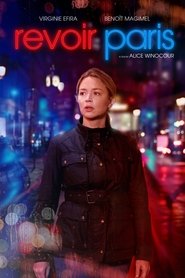Bataclansploitation, surely? If you transplanted the story to a US school shooting, this would be an grossly obscene piece of filmmaking. But set it in Paris, weave in enough symbols of France and give it a photogenic female protagonist (and a rather clumsy love story with a low-calorie version of Gérard Depardieu), and… voilà — it's suddenly brave and hard-hitting. Paris Memories never ended up genuinely irritating me (except for when she learns the man she is searching for works at the damned Eiffel Tower of all places…), but it was hard to stop thinking about two things. First was that the film unnecessarily teased us with the shocking idea that she had repressed 'bad' memories of the attack — ie. what if she had been the one who locked others out of the bathroom during the attack? Now, that would have made for an arresting film, indeed, yet the film seemed to shy away from this. And second thought was that the film's existence is essentially an act of cinematic rubbernecking motivated by the public's decidedly prurient interest in the testimony given from September 2021 through July 2022 about the attack on the Stade de France in 2015.
Chris Barsanti (Slant) offers a concrete example ("A scene where she helps the teenaged daughter […] say goodbye to her parents’ memory by going to see Monet’s waterlily paintings at the Musée de l’Orangerie is beautiful but also conspicuously neat and too heartfelt by half"), and Michael Philllips' summary in the Chicago Tribune feels some of the same unease that I do:
There’s considerable craft underneath everything [writer-director Winocour] does, even when her script indulges in some sentimentally manipulative plotting in the later stages. But there’s a whiff of exceptionalism, of survivor’s guilt blithely ignored, in the way the movie glides along, dominated by beautiful close-ups of a beautiful star. The use of recent tragic events for a protagonist’s personal growth becomes more and more dubious, in ways recalling both indie and mainstream American attempts to dramatize the fallout of 9/11.
But I'll leave it to Leonardo Goi writing in The Film Stage:
As time went on I found myself wondering how much more affecting the film might have turned out had Winocour chosen to complicate some of its heavy-handed metaphors and cliches. As it is, the journey feels almost too formulaic in its beats and imagery, from the often stilted exchanges between Thomas and Mia (“we need to outfit fate”) to their shared scars, physical and psychological, culminating with a reunion that registers as a we-are-one moment that's as sincere as it is surprisingly mute.

